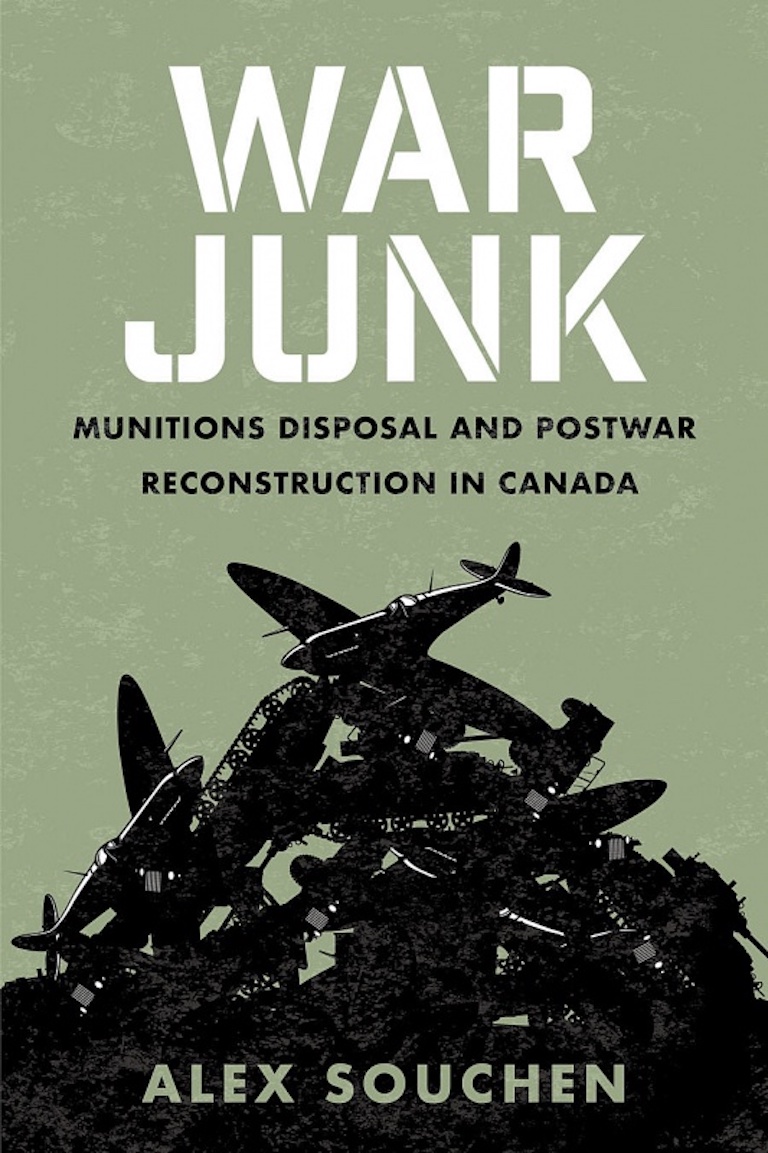War Junk

War Junk: Munitions Disposal and Postwar Reconstruction in Canada
by Alex Souchen
UBC Press,
304 pages, $34.95
Much has been written about how countries prepare for war; but how do they de-escalate and instead prepare for peace? That question is at the heart of the book War Junk, by historian Alex Souchen. At the end of the Second World War, Canadians needed to adapt to a new life, but so did their unneeded military vehicles and equipment. Souchen chronicles the retirement of these items and, for some, their “second careers.”
The organization of this process was an immense undertaking — “the largest divestment of public property in Canadian history,” Souchen writes. His book explores the economic, political, and environmental impacts of the nationwide demobilization, from legislation passed by Prime Minister William Lyon Mackenzie King’s government to the boiling of explosive shells.
Approachable in tone but rich in detail, War Junk includes numerous quotations, figures, and tables. Of particular note are photographs in which means of transport are the focus: naval vessels crowding ship graveyards off the coast of British Columbia; a field of airplanes awaiting incineration; a jeep turned cultivator crawling through the soil on a postwar farm.
Not unlike the war effort, the disposal and recycling of military equipment was a larger-than-life task. The objects instrumental to the Allied victory did not disappear; instead they shaped the physical and social conditions of postwar Canada. War Junk shines a light on them.
Themes associated with this article
Advertisement




